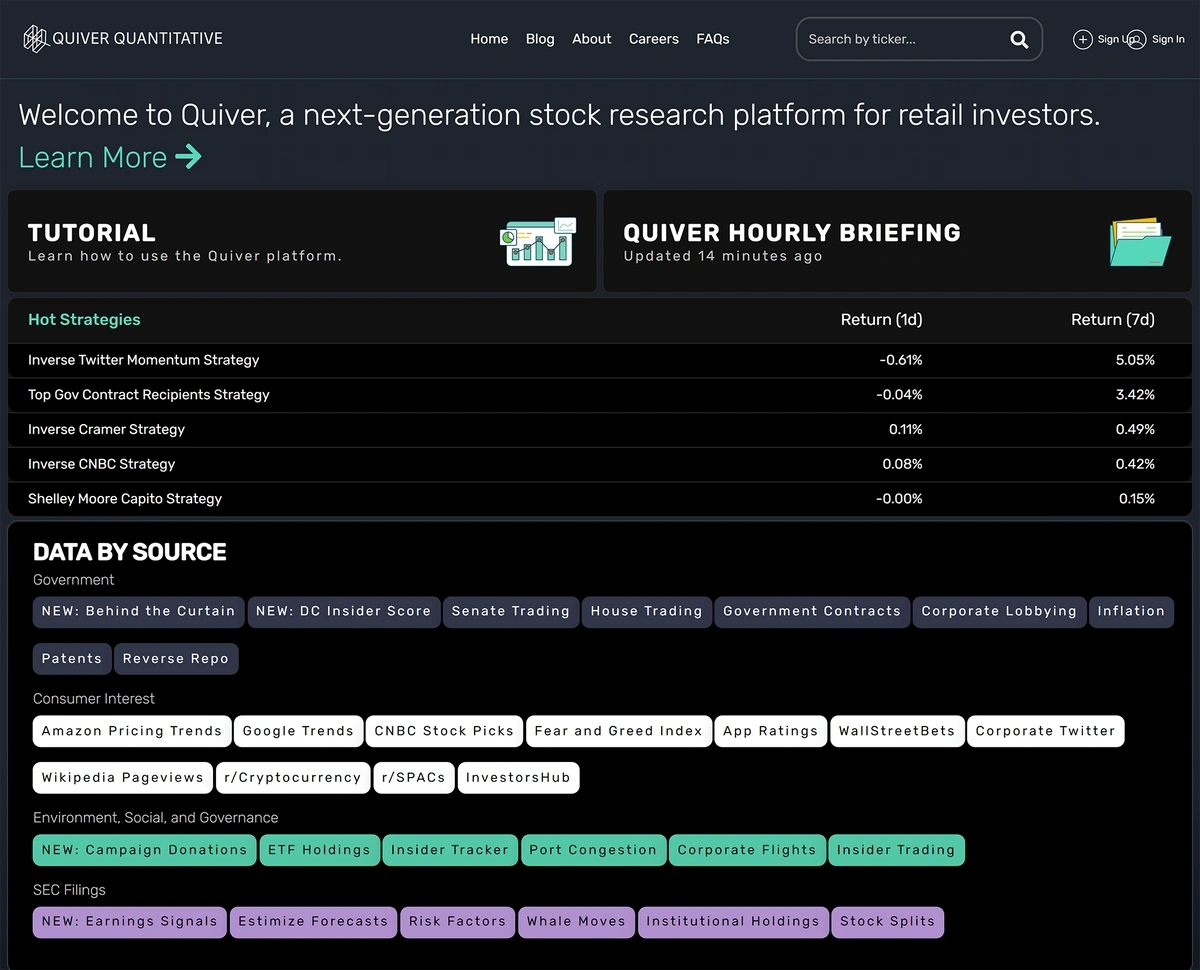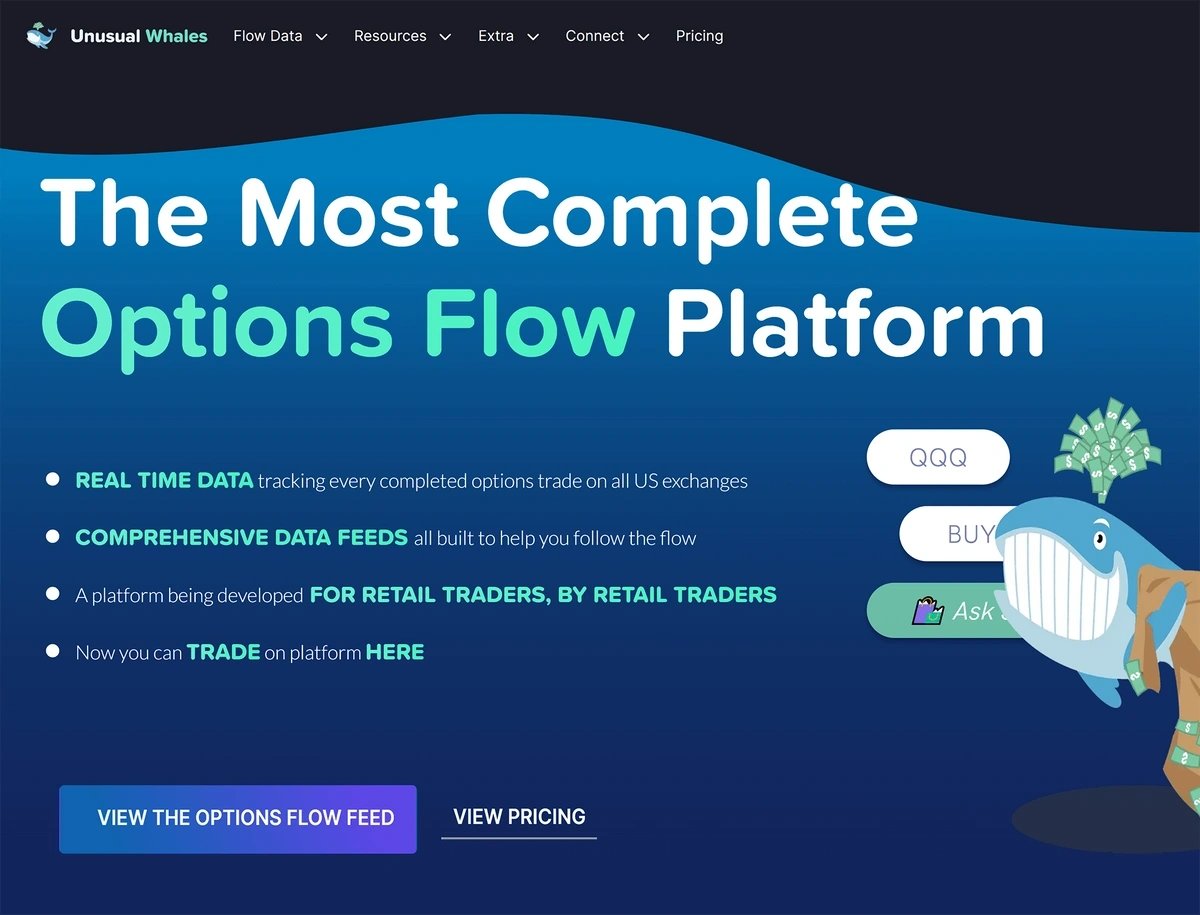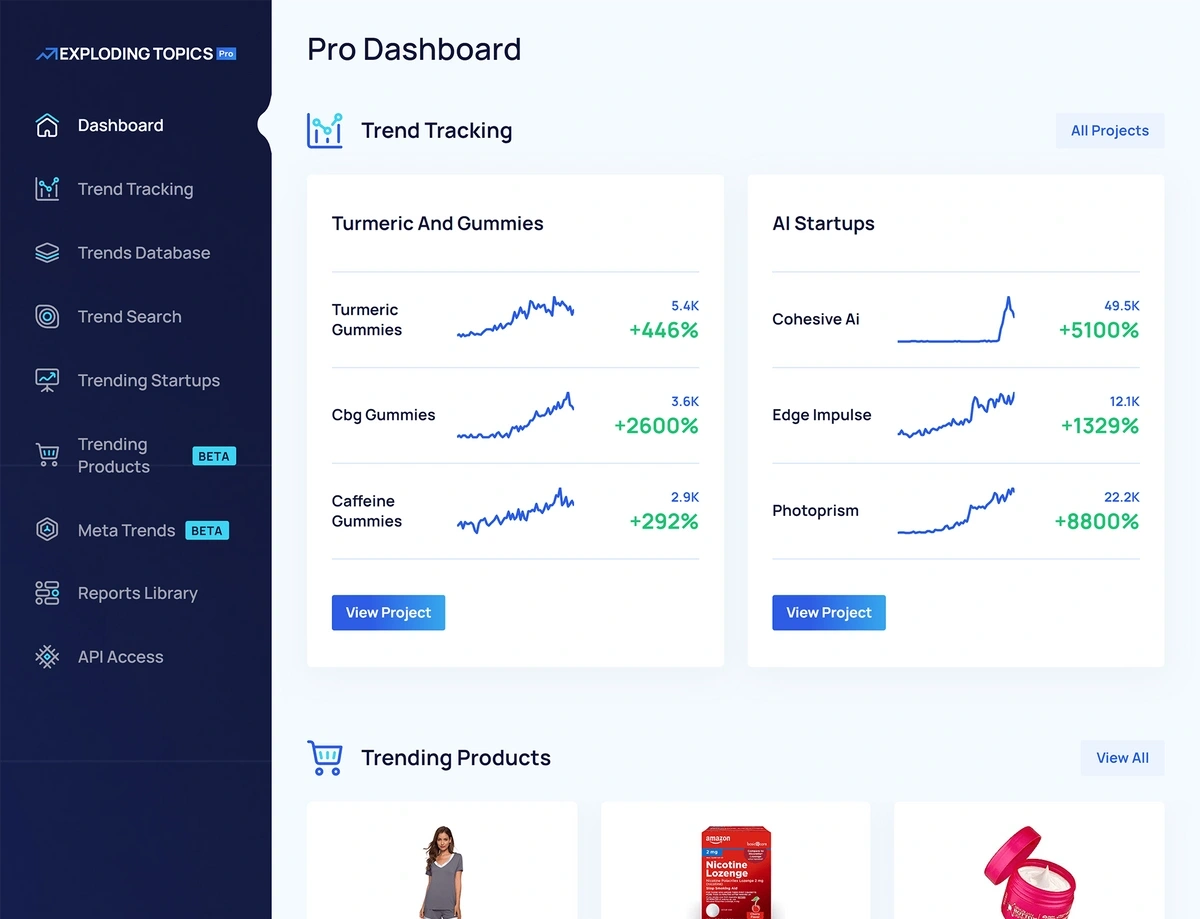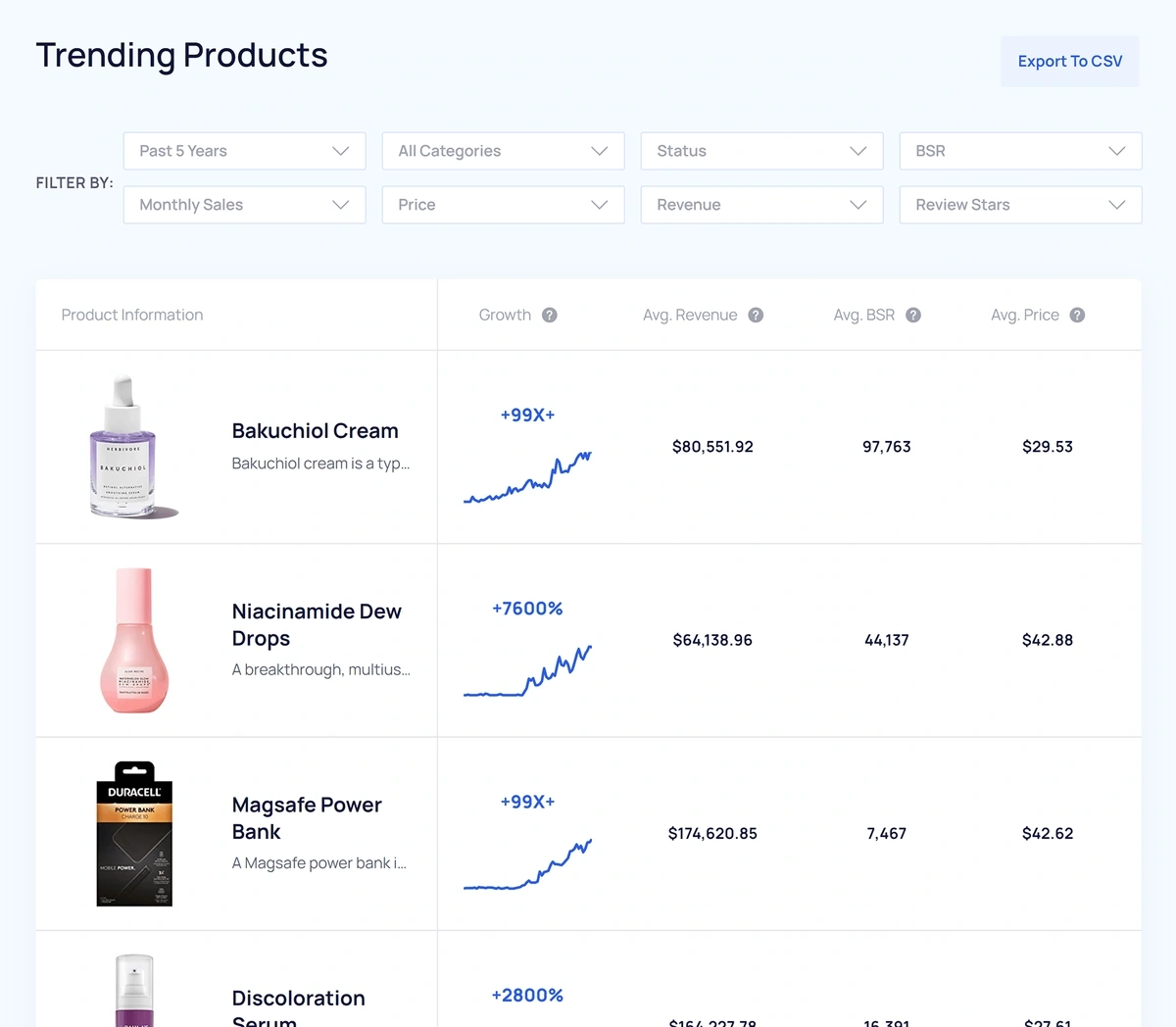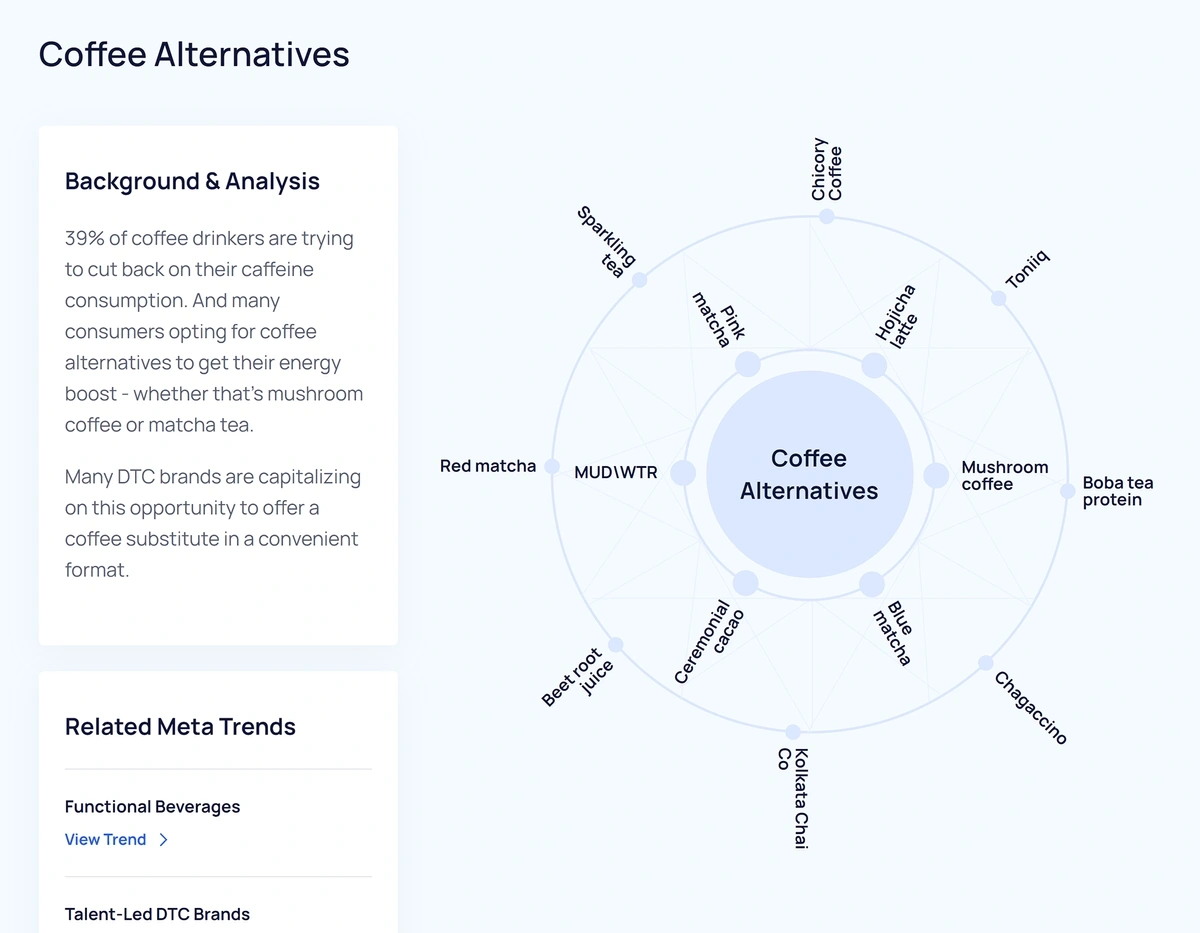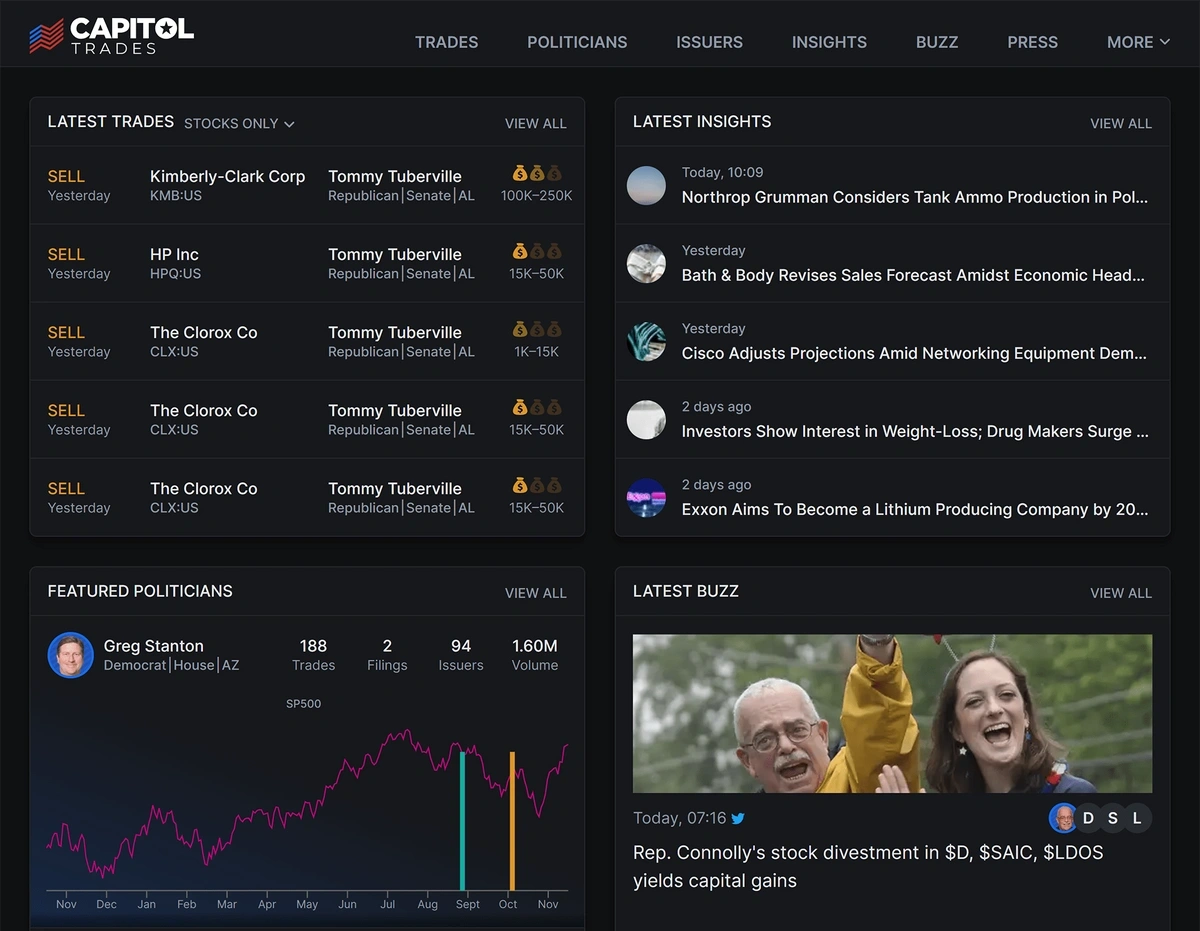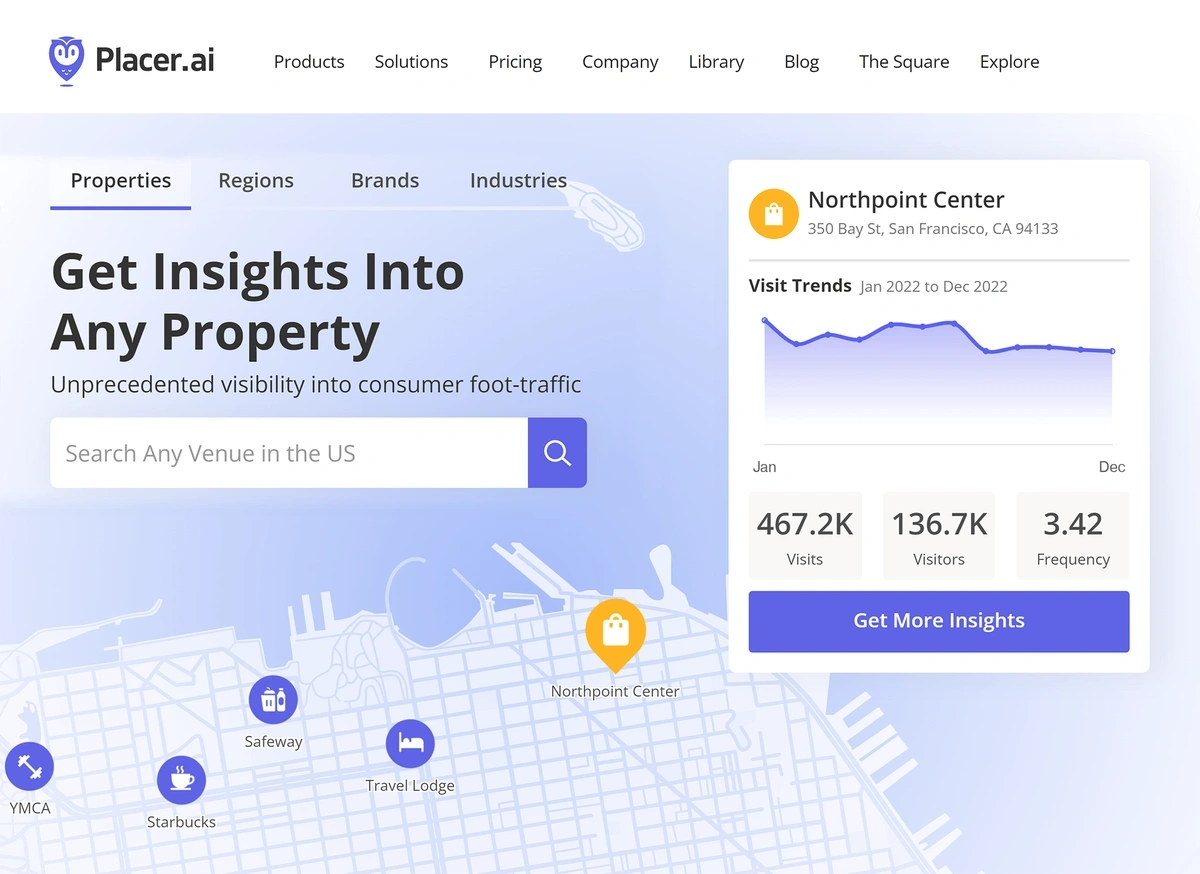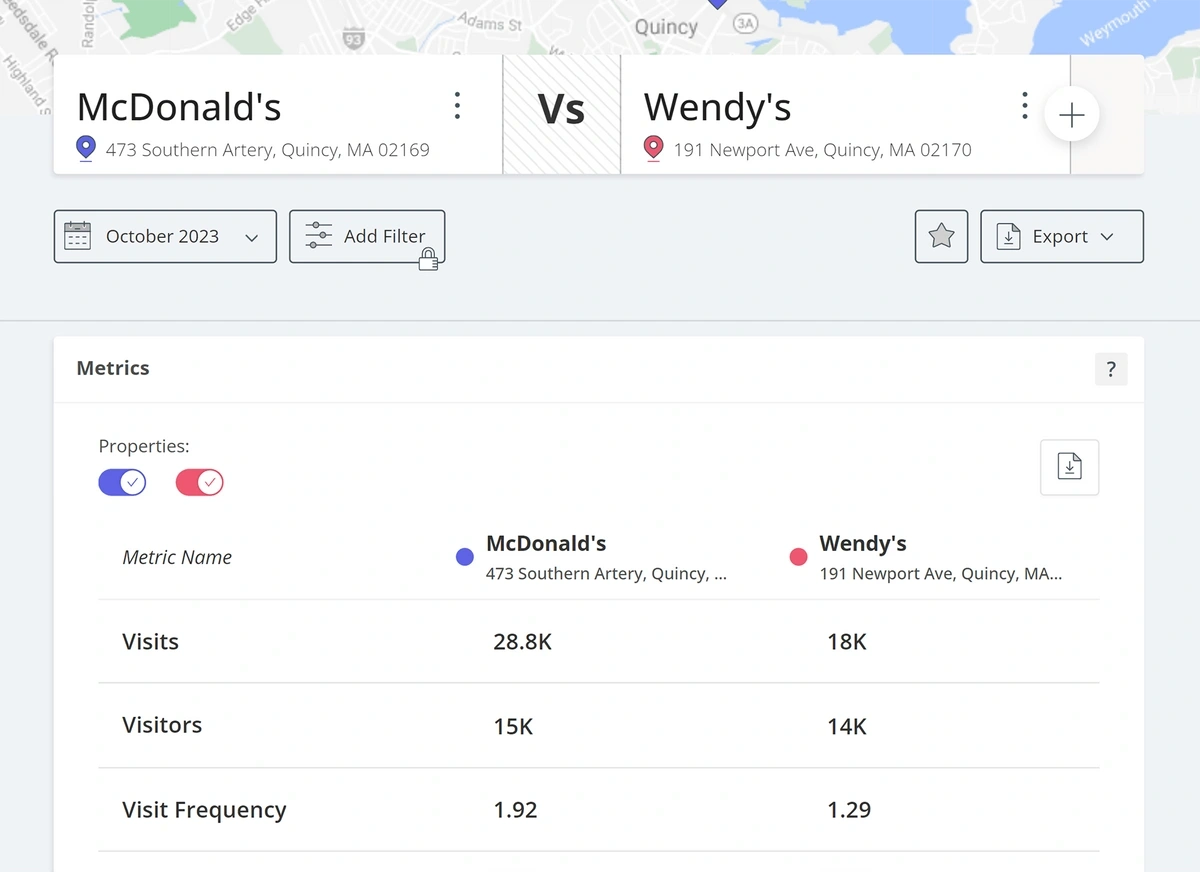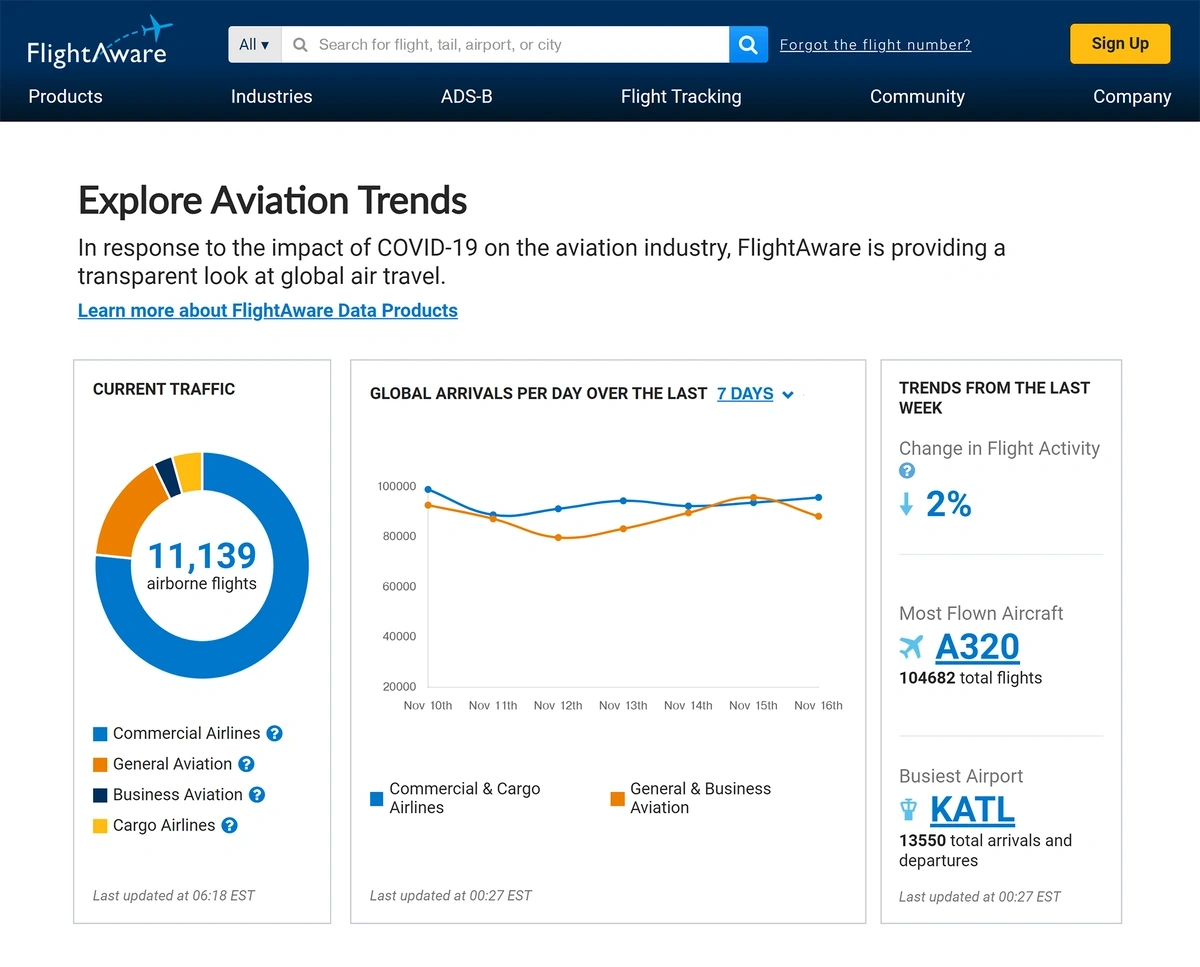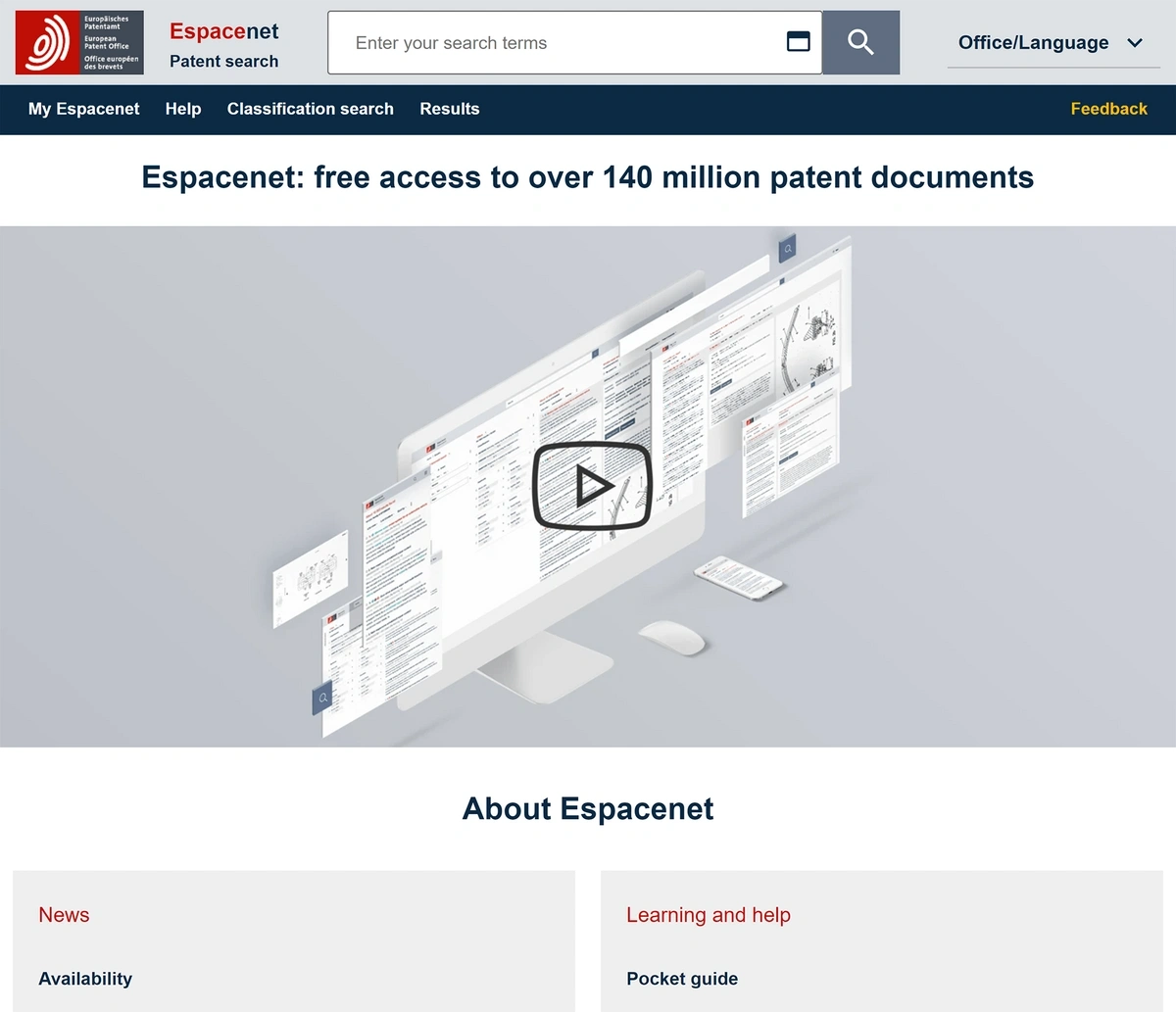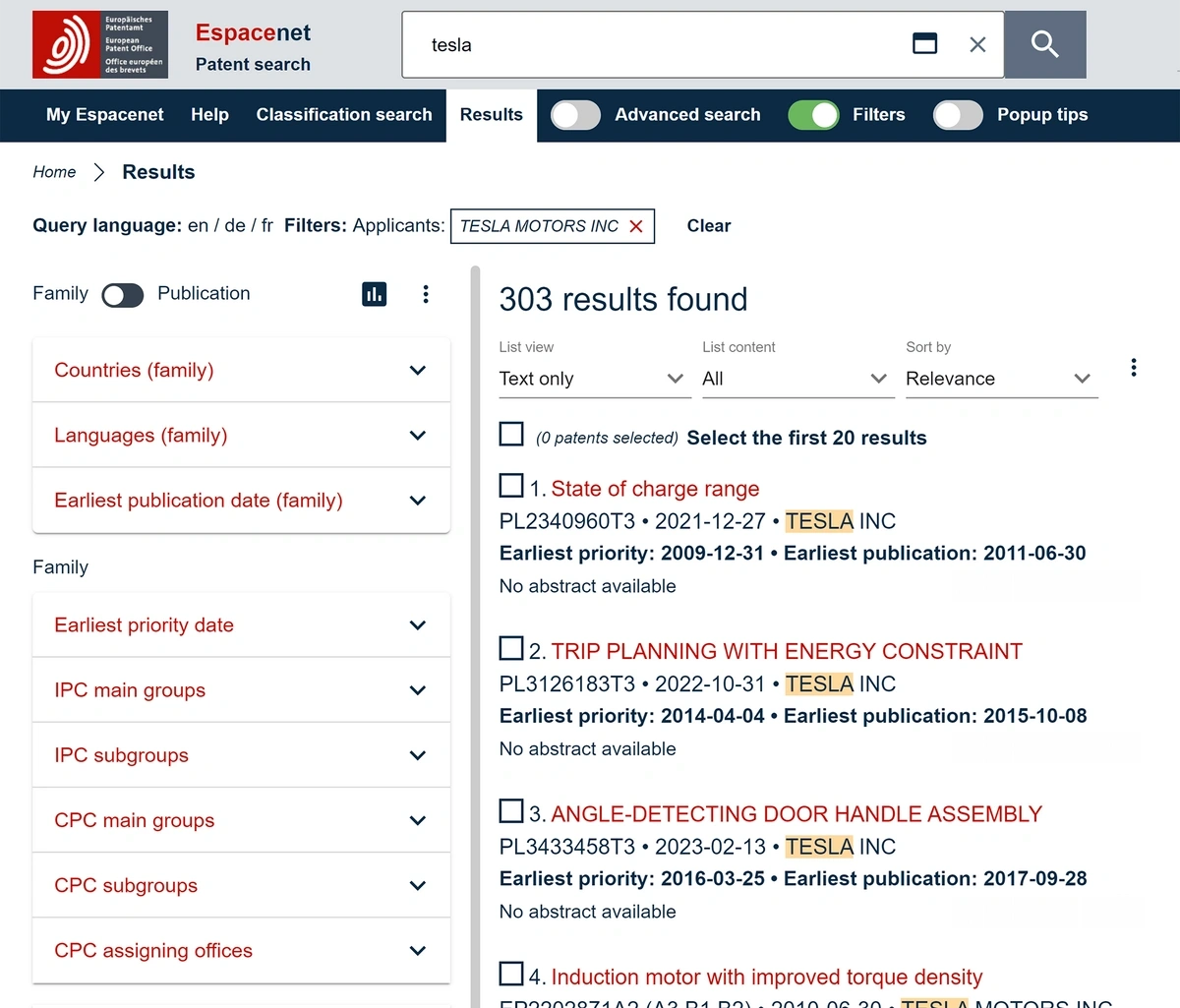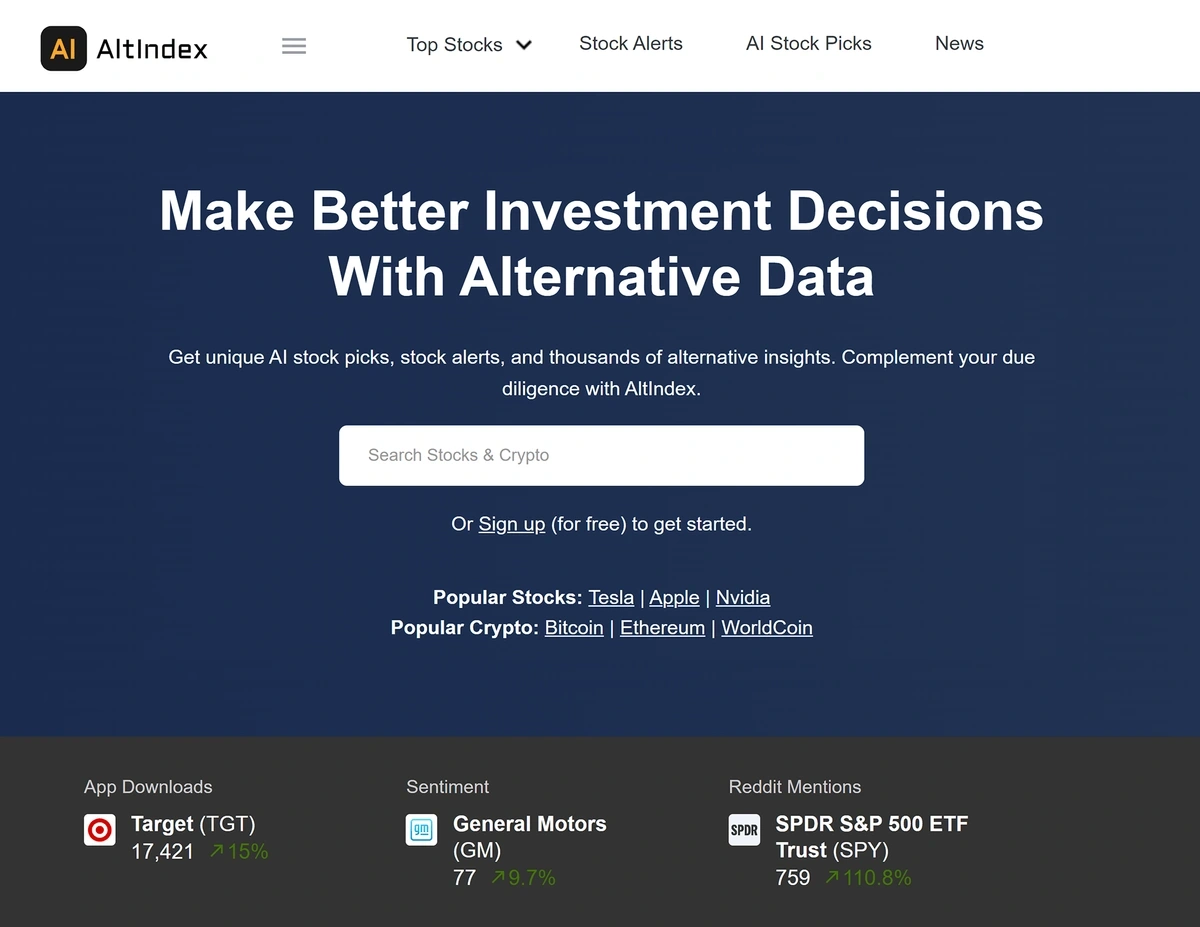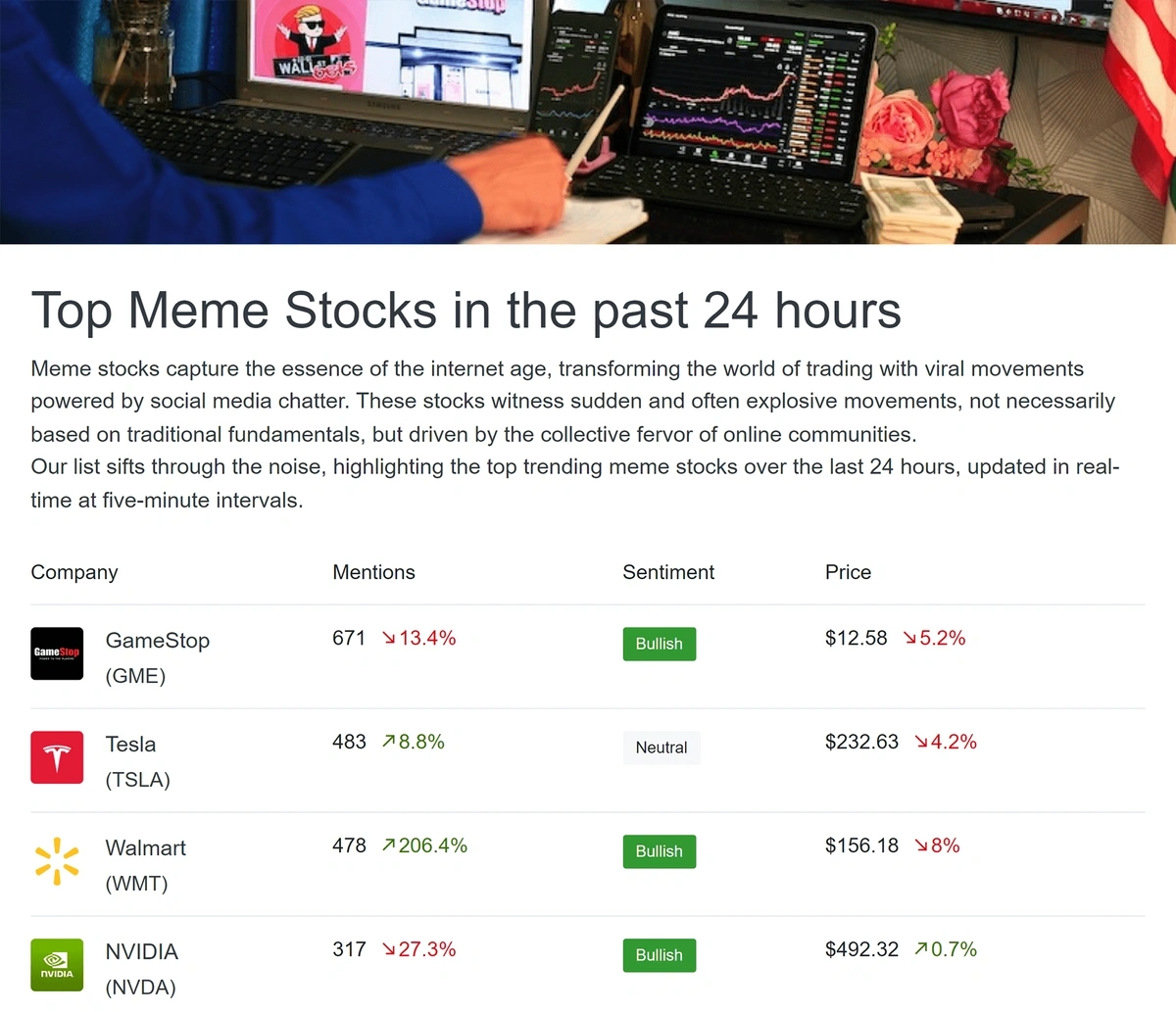Get Advanced Insights on Any Topic
Discover Trends 12+ Months Before Everyone Else
How We Find Trends Before They Take Off
Exploding Topics’ advanced algorithm monitors millions of unstructured data points to spot trends early on.

Features
Keyword Research
Performance Tracking
Competitor Intelligence
Fix Your Site’s SEO Issues in 30 Seconds
Find technical issues blocking search visibility. Get prioritized, actionable fixes in seconds.
Powered by data from
7 Top Quiver Quantitative Alternatives & Competitors (2024)
Quiver Quantitative is an alternative data platform for retail investors.
Its information includes U.S. Congress trading activity, Amazon pricing trends, patent filing activity, and more.
However, data sets are available from dozens of different sources. This list covers seven of the best Quiver Quantitative alternatives available right now.
1. Unusual Whales: Best For Dark Pool Data
Unusual Whales is a real-time alternative data provider that’s similar to Quiver Quantitative.
The platform's data feeds let you easily explore information like:
- Stock market fluctuations
- Trading-related news alerts
- Crypto performance
- Company sentiment on social media
- Fuel prices
- Political trading activity
One interesting feature is Unusual Whales' “dark pools feed”.
Dark pools are private securities exchanges for institutional investors, like hedge funds. While these actions aren't meant to affect the wide market, as many as 40% of trades happen in dark pools.
Having access to insights about professional investors' activity can help you make decisions based on all relevant recent trades, not just the ones more immediately affecting the Dow or Nasdaq ticker.
How Much Does Unusual Whales Cost?
You can begin exploring Unusual Whales data right now for free. Some data is only available to paid users, though, including the dark pool feeds.
To access everything that Unusual Whales offers, you'll need a paid plan starting at $48 per month or $528 per year.
Unusual Whales vs. Quiver Quantitative: At a Glance
| Unusual Whales | Quiver Quantitative | |
| Starting price | Free | Free |
| Data sources |
|
|
| Notable feature | Dark pool data | Broad corporate data sets |
2. Exploding Topics: Best For Consumer Interest Data
Exploding Topics is a social listening and trend spotting tool.
Our data sets can help you get a complete picture of what consumers are interested in, as well as the value of popular e-commerce products and growing startups.
And because we look at what real people are discussing, you can use our data to establish which retail companies, tech brands, and product lines could be a smart investment.
We leverage artificial intelligence (AI) to gather data from multiple sources continuously, including:
- Social media networks
- Forums
- Review sites
- News outlets
- Blogs
Our team of data experts then reviews this information and updates the database daily, so you're getting the most up-to-date alternative data.
Some of our most useful features for investors include:
- Historical data that stretches back 15 years
- A trending products list that provides an at-a-glance overview of item popularity and cost
- Information about trending startups, including funding stage and number of employees
- A meta trends analysis tool that shows you how different topics relate to and impact each other
How Much Does Exploding Topics Cost?
Exploding Topics is free to use—you can access a portion of our database right now from our homepage.
For access to all our alternative data features and trend reports, though, you'll need an Exploding Topics Pro subscription.
Plan options for investors start at $99 per month, and you can get a seven-day Pro trial for just $1.
Exploding Topics vs. Quiver Quantitative: At a Glance
| Exploding Topics | Quiver Quantitative | |
| Starting price | Free | Free |
| Data sources |
|
|
| Notable feature | Meta trends comparison | Broad corporate data sets |
3. Capitol Trades: Best For Political Trading Data
Capitol Trades is a platform that tracks the investment activity of U.S. government officials.
The platform pulls some of their data from 2iQ, a research firm focused on insider transactions.
You can view and sort Capitol Trades data by:
- Politician name
- Stock type
- Activity type
- Transaction type
- Trade size
- Investment sector
- Political party
Following the investment decisions made by politicians can help you figure out their trading strategies and fill key information gaps in your investment strategy.
You can also browse investment news alerts and reports on the Capitol Trades dashboard.
How Much Does Capitol Trades Cost?
Capitol Trades is free to use, and you don't need an account.
Capitol Trades vs. Quiver Quantitative: At a Glance
| Capitol Trades | Quiver Quantitative | |
| Starting price | Free | Free |
| Data sources |
|
|
| Notable feature | The ability to sort by politician name and party | Broad corporate data sets |
4. Placer.ai: Best For Retail Data
Placer.ai is a SaaS tool that measures how popular real-world locations are with the public.
The tool is useful for finding information about foot traffic to locations like:
- Stores
- Gyms
- Restaurants
- Cafes
- Shopping malls
Placer.ai lets you see data about an individual location or compare it to another establishment, including competitors.
For example, through Placer.ai, we see that people in Quincy, Massachusetts prefer McDonald's to Wendy's—even though the two restaurants are on the same street.
You could also use Placer to compare how the same store is performing in two different locations.
This data is helpful for identifying patterns in retail trends and popularity—and useful if you're going to invest in publicly traded brands.
How Much Does Placer.ai Cost?
You can begin exploring Placer.ai data right now with a free account. Some data points are limited to platform subscribers, though.
To unlock every Placer.ai insight, you'll have to purchase a paid plan that's custom priced to your needs.
Placer.ai vs. Quiver Quantitative: At a Glance
| Placer.ai | Quiver Quantitative | |
| Starting price | Free | Free |
| Data sources | In-person foot traffic |
|
| Notable feature | Location-based comparisons | Broad corporate data sets |
5. FlightAware: Best For Aviation Data
FlightAware is a flight tracking tool that lets you see the paths taken by public and private planes.
If you're particularly interested in the corporate jet tracking features in Quiver Quantitative, then Flight Aware might be a great alternative option for you.
By tracking the patterns of private and corporate jet fleets, you can glean insights around potential deals that may be forming between large companies or investors.
And because FlightAware allows you to search flights by airport, airline, and fleet operator, you can focus on targeted areas and routes.
How Much Does FlightAware Cost?
You can manually search FlightAware's data on their website for free, without an account.
For enhanced tracking—including monitoring and receiving alerts about a corporate fleet—you'll need to purchase an Enterprise plan.
Options start at $99.95 per user, per month.
FlightAware vs. Quiver Quantitative: At a Glance
| FlightAware | Quiver Quantitative | |
| Starting price | Free | Free |
| Data sources |
|
|
| Notable feature | Fleet tracking and notifications | Broad corporate data sets |
6. Espacenet: Best For Patent Filing Data
Espacenet is an international patent database.
You can use the tool to find information about new and existing patents.
Espacenet search results are vast. For example, if you type in "Tesla" you'll get thousands of results including patents held by inventor Nikola Tesla in the early 1900s.
In this case, there are filters that let you exclude Nikola Tesla, or limit your search to Tesla, Inc.—making it easier to find what you're seeking.
You can then use these results to help build out your understanding of the companies and industries that are rapidly innovating, all based on their patent activity.
How Much Does Espacenet Cost?
Espacenet is part of the European Patent Office and is free to use.
Espacenet vs. Quiver Quantitative: At a Glance
| Espacenet | Quiver Quantitative | |
| Starting price | Free | Free |
| Data sources | International patent office filings |
|
| Notable feature | Company and inventor search filters | Broad corporate data sets |
7. AltIndex: Best For Cryptocurrency Data
AltIndex is an alternative data provider that offers AI-enhanced information about stocks, cryptocurrencies, and companies.
You can use the tool to look up things like:
- Cryptocurrency values
- Website visitors and app users
- Company sentiment
- Online trading trends
- Stock performance by industry
- Corporate job posts
- Wallstreetbets activity
While the platform includes a fair amount of traditional stock data, its insights around tech customers and social media-powered stock trends are useful when developing an alternative investment strategy.
You can also use AltIndex to browse AI predictions and see how your own investment decisions line up with those produced through machine learning.
How Much Does AltIndex Cost?
There's no cost to browse AltIndex. To access its AI stock predictions and remove usage limits, you'll need a paid plan.
Options start at $29 for unlimited dashboard use and up to 10 AI stock picks each month.
AltIndex vs. Quiver Quantitative: At a Glance
| AltIndex | Quiver Quantitative | |
| Starting price | Free | Free |
| Data sources |
|
|
| Notable feature | AI predictions | Broad corporate data sets |
Conclusion
If you're serious about retail investing, the tools on this list can help you build out a complete picture of key alternative data points that may influence trading activity.
- If you're focused on e-commerce or retail companies, you'll likely find Exploding Topics and Placer.ai to be two particularly useful tools.
- If you're focused on monitoring trades made by political figures, you might want to stick with Quiver Quantitative or give Capitol Trades a try.
- If you keep many of your investments in cryptocurrencies, AltIndex will probably be one tool you turn to frequently.
Ultimately, since Quiver Quantitative and many of its competitors offer free data access, relying on a selection of social listening tools and other platforms can help you use alternative data for successful investing.
Stop Guessing, Start Growing 🚀
Use real-time topic data to create content that resonates and brings results.
Exploding Topics is owned by Semrush. Our mission is to provide accurate data and expert insights on emerging trends. Unless otherwise noted, this page’s content was written by either an employee or a paid contractor of Semrush Inc.
Share
Newsletter Signup
By clicking “Subscribe” you agree to Semrush Privacy Policy and consent to Semrush using your contact data for newsletter purposes
Written By


Josh is the Co-Founder and CTO of Exploding Topics. Josh has led Exploding Topics product development from the first line of co... Read more




